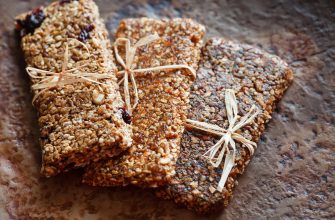Understanding Vegetarian Protein Powders and Supplements
One of the most common concerns among vegetarians is maintaining sufficient protein intake. Protein powders and supplements can be a convenient solution, especially for those who are physically active. However, not all protein products are created equal.
Choosing a Vegetarian Protein Powder
When looking for a vegetarian protein powder, ensure it’s free from animal-derived ingredients. It’s crucial to check the product label. Whey and casein, common ingredients in protein powders, are derived from milk. Opt for plant-based proteins like pea, hemp, soy, and brown rice protein.
Consider the protein content per serving. A good protein powder should provide at least 20 grams of protein per serving.
Also, look for a product low in sugar and free from artificial additives. Some protein powders are packed with added sugars and unnecessary fillers. These can detract from the health benefits of the product.
The Benefits of Vegetarian Protein Powders
Plant-based protein powders are an excellent source of protein for vegetarians. They can help meet daily protein needs and support muscle growth and recovery after workouts.
Plant proteins also offer other health benefits. For example, they are typically high in fiber and other nutrients, such as iron and B-vitamins.
Supplementing with Vegetarian Protein
Supplements can play a role in a vegetarian diet, particularly for those with specific nutritional needs or goals. For example, B12 is an essential vitamin that’s primarily found in animal products. Vegetarians may need to supplement their diet with B12.
Similarly, creatine, a compound important for energy production in muscles, is primarily found in meat and fish. Vegetarians may benefit from supplementing with creatine to support their exercise performance.
Closing Thoughts
Choosing the right vegetarian protein powder or supplement requires some research. It’s important to consider your dietary needs, taste preferences, and lifestyle. But with the right choice, these products can be a valuable addition to a healthy vegetarian diet.
Navigating the Market: Trusted Brands and Products
With so many protein powders and supplements available, it can be overwhelming to choose. Some well-known brands of vegetarian protein powders include Vega, Orgain and Garden of Life. They offer a range of plant-based protein powders with different flavours and nutritional profiles.
Vega is known for its high-protein, low-sugar products, and its protein powders are often fortified with greens and superfoods for added health benefits. Orgain is known for its clean, organic ingredients, and Garden of Life offers a variety of options, including raw and grain-free protein powders.
When it comes to supplements, Deva and NOW Foods are popular choices for vegetarians. They offer a range of supplements, including B12 and creatine, that are suitable for vegetarians.
Incorporating Protein Powders and Supplements into Your Diet
Adding protein powder to your diet can be as simple as mixing it into a smoothie or shake. You can also get creative and use protein powder in baking, like protein pancakes or muffins, or stir it into oatmeal for a protein boost.
Supplements typically come in pill or powder form. Pills can be taken with a glass of water, and powders can be mixed into drinks or food. Always follow the manufacturer’s instructions for optimal results.
Consult a Healthcare Professional
Before starting any new supplement regimen, it’s always a good idea to consult with a healthcare professional. They can provide personalized advice based on your health history and dietary needs.
Conclusion
Vegetarian protein powders and supplements can be a convenient way to boost your protein intake and meet other nutritional needs. With careful selection and proper use, they can be a valuable addition to a balanced vegetarian diet.
